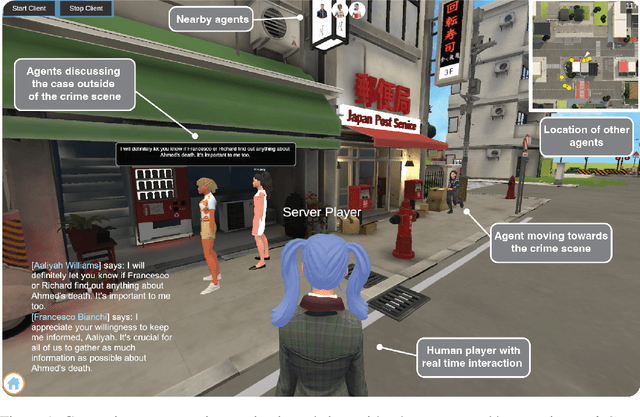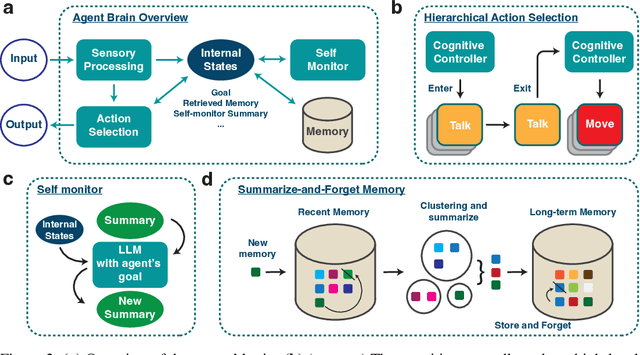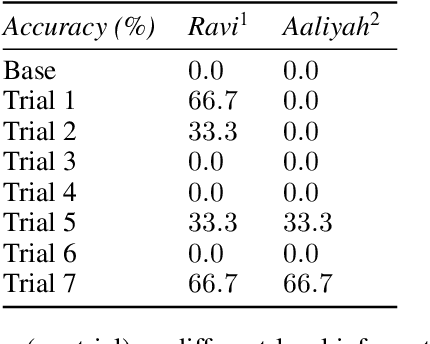Andrew Ahn
Project Sid: Many-agent simulations toward AI civilization
Oct 31, 2024



Abstract:AI agents have been evaluated in isolation or within small groups, where interactions remain limited in scope and complexity. Large-scale simulations involving many autonomous agents -- reflecting the full spectrum of civilizational processes -- have yet to be explored. Here, we demonstrate how 10 - 1000+ AI agents behave and progress within agent societies. We first introduce the PIANO (Parallel Information Aggregation via Neural Orchestration) architecture, which enables agents to interact with humans and other agents in real-time while maintaining coherence across multiple output streams. We then evaluate agent performance in agent simulations using civilizational benchmarks inspired by human history. These simulations, set within a Minecraft environment, reveal that agents are capable of meaningful progress -- autonomously developing specialized roles, adhering to and changing collective rules, and engaging in cultural and religious transmission. These preliminary results show that agents can achieve significant milestones towards AI civilizations, opening new avenues for large simulations, agentic organizational intelligence, and integrating AI into human civilizations.
Lyfe Agents: Generative agents for low-cost real-time social interactions
Oct 03, 2023



Abstract:Highly autonomous generative agents powered by large language models promise to simulate intricate social behaviors in virtual societies. However, achieving real-time interactions with humans at a low computational cost remains challenging. Here, we introduce Lyfe Agents. They combine low-cost with real-time responsiveness, all while remaining intelligent and goal-oriented. Key innovations include: (1) an option-action framework, reducing the cost of high-level decisions; (2) asynchronous self-monitoring for better self-consistency; and (3) a Summarize-and-Forget memory mechanism, prioritizing critical memory items at a low cost. We evaluate Lyfe Agents' self-motivation and sociability across several multi-agent scenarios in our custom LyfeGame 3D virtual environment platform. When equipped with our brain-inspired techniques, Lyfe Agents can exhibit human-like self-motivated social reasoning. For example, the agents can solve a crime (a murder mystery) through autonomous collaboration and information exchange. Meanwhile, our techniques enabled Lyfe Agents to operate at a computational cost 10-100 times lower than existing alternatives. Our findings underscore the transformative potential of autonomous generative agents to enrich human social experiences in virtual worlds.
 Add to Chrome
Add to Chrome Add to Firefox
Add to Firefox Add to Edge
Add to Edge